Svetlana Chmakova: Exploring Manga Outside of Japan
As an art form, manga is heavily associated with Japan. This is not surprising, seeming as the country produces millions of publications, in magazines and tankōbon (volumes), every year. Many of these, notable examples being Naruto, Full Metal Alchemist and Fruits Basket, have become internationally famous, published in a variety of languages for the whole world to read and enjoy. This boom in popularity has inspired many artists to create manga of their own, regardless of their nationality. Korean ‘manwha’ and Chinese ‘manhua’ have risen in prominence over the years, but elsewhere artists of all backgrounds are putting pen to paper and producing their own manga. Occasionally there is criticism against labelling non-Japanese comics as manga – some believe that it exclusively belongs to Japan because it originates from there. However, manga is art as well as a cultural phenomenon. In other words, telling someone they cannot draw manga is like criticising a painter for using impressionism, a style originally associated with Paris. An art style may begin in one place, but with growing popularity can travel the globe and inspire artists from all over. Svetlana Chmakova, a Russian-Canadian artist, is just one person who proves that the non-Japanese have a right to classify their work as manga, regardless of their nationality.
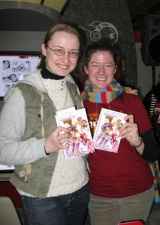
Chmakova, born in Russia in 1979, describes herself on her website as ‘a fledgling North-American equivalent of a manga-ka’. She moved to Canada at sixteen years old and graduated from the Classical Animation Programme at Sheridan College, Ontario in 2002. After publishing some work online, for example her web comic Chasing Rainbows, she emerged as a manga-style artist with her series Adventures of Cosmo Girl, featured in the North American magazine CosmoGIRL!, but really hit the popularity jackpot with the three-volume series Dramacon, originally published from 2005 to 2007 by Tokyopop.
Dramacon is an Original English Language (OEL) manga, first published in North America before branching out to other countries like France, Germany, Britain and Spain. It follows the story of Christie Leroux, a teenage writer who attends her first anime convention. She experiences romance, friendship, drama and a whole host of amusingly embarrassing situations during her first experience and two following trips to the convention. Chmakova explores many tropes and themes familiar to manga fans: cosplay, cat hats, J-pop music, buying obscene amounts of the Asian snack Pocky, and most prominently the dream of trying to make a career out of manga, something which remains a hobby to most. The series is a fun read, particularly due to Chmakova’s brilliant sense of humour (included prominently in her witty side-panels), but also speaks out against the opinion that artists outside of Japan cannot be manga-ka. During the second volume of Dramacon, a young boy becomes angry with Christie and her artist Bethany for calling their work manga. He is admonished by his mother for acting rudely, but Christie and Bethany are stung by his words. The exploration of this theme in her work shows how Chmakova is aware of, and has experienced, discrimination for labelling herself as a manga-ka. During an interview, she says of this scene that ‘I haven’t heard of something like this ever happening at [an anime convention], but I have seen it a lot online in message boards. There, people have been quite venomous’. Chmakova herself is supportive of calling some non-Japanese comics manga; Dramacon‘s character Lida Zeff, a successful manga-ka and Christie’s personal hero, stands up for Christie and Bethany when they are accused of passing off comics as manga. She is a strong, admirable character who represents the opinion that manga is an art form, not just Japan-centric but a style that anybody can use.
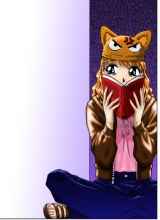
Since its publication, Dramacon has been translated into many different languages, recently adding a Japanese release to its belt. Nominated for an Eisner, a very prestigious award for comic artists, Dramacon has shown its worth as a publication in the manga world.
Currently working on Nightschool, a fantasy manga aimed at teenagers but with something to offer for all readers, Chmakova is an artist who has shone through as a talented manga-ka, despite not being Japanese.
What do you think? Leave a comment.





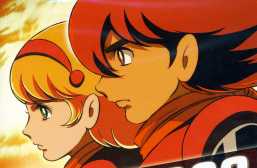
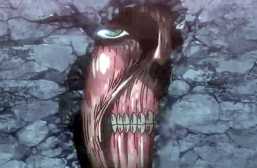
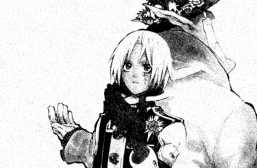
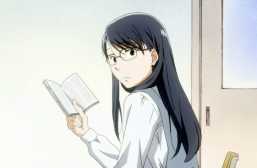
I’m not familiar with Chmakova’s work. Thank you for the recommendation, I will read up on it. More manga outside of Japan should be in the spotlight.
Thanks Meredith 😀 yep, there’s some talent out there!
I found this really interesting! Great article. Didn’t Courtney Love produce a semi- biographical manga outside of Japan as well?
Cheers Euan 😀 had no idea Courtney Love had an interest in manga! The more you know…
Courtney Love co-created Princess Ai.
Great article! I knew Fruits Basket will be mentioned at some point xD
Thanks Esther 🙂 haha yes, it’s just so popular! One of the first manga I ever read too, fond memories.
Do you know much about Korean manga? Or South Korean to be more exact. There is great work being published from there.
Unfortunately no! I’ve always been meaning to read some – any recommendations for me? 😀
Of course! Most famous is Noblesse. Google it and start reading. Give it a few issues, it gets so incredibly good that you will likely read through it in one go 😉
Thanks 😀
This was a really interesting article. I haven’t taken a big look at manga outside Japan because I haven’t been sure where to look! Thanks for the reccommendation. 🙂
No problem 😀 I definitely recommend Dramacon!
Great article. I came across some of her stuff from a friend that went to Ohayocon. Rather impressive and inspirational for a lot of the aspiring comic artists I know who tend shy away from the manga style.
I loved this article! Svetlana was one of the biggest inspirations for me in high school, and Dramacon is what got me into the con circuit. It’s wonderful to see her being talked about and discussed once more.
I’m glad you wrote this article, because at the moment i’m trying to create my own manga. When I read Dramacon, that’s when I became aware of the situation that some authors may be experiencing through society. I do agree with you, manga and anime is an art that many people get involved in, and no matter the ethnicity, it’s till manga. I enjoyed reading your article!
This definitely ties in with the expansion of the concept of manga – for example, korean manwha is becoming increasingly popular and integrated (although still retains its own unique format).
This looks like a great anime series and consistent with the work that would come from Japan.